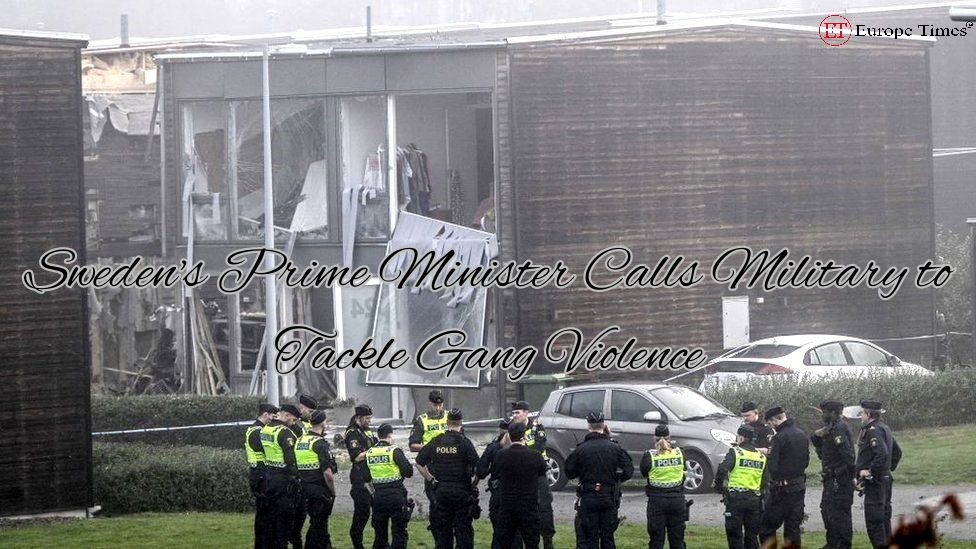Sweden gangs: PM summons army chief after surge in killings

Sweden’s Prime Minister, Ulf Kristersson, has taken unprecedented steps to address a concerning surge in gang-related violence by summoning the head of the armed forces, Micael Byden, for assistance. The two leaders, along with the country’s police chief, are set to meet to discuss the potential role of the military in combating the escalating issue.
In a rare televised address, Prime Minister Kristersson expressed his determination to tackle the gang problem head-on, stating, “We will hunt the gangs down, and we will defeat them.” The move to involve the military comes in the wake of a particularly bloody 12-hour period, during which two men were shot dead in Stockholm, and a 25-year-old woman lost her life in an explosion in a town north of the capital.
While the exact nature of the military’s involvement remains uncertain, previous discussions have suggested that soldiers might take over certain policing duties to free up resources for law enforcement agencies to focus on crime-fighting. Critics, however, argue that these measures address the symptoms rather than the root causes of the violence.
Over the course of this month, Sweden has witnessed 12 fatalities in gang-related violence, the highest number since December 2019. The recent surge is believed to be linked to conflicts within a gang known as the Foxtrot network, which has splintered into rival factions due to infighting.
Prime Minister Kristersson emphasized the severity of the situation, noting that “no other country in Europe” is currently facing a similar crisis. He expressed concern that violence is increasingly ensnaring children and innocent bystanders across the country.
Efforts to address gang violence have included more surveillance, stricter penalties for gun law violations, enhanced deportation powers, and the establishment of stop-and-search zones. The prime minister’s government has sought inspiration from New York City’s strategies, yet some community organizers argue that these measures fall short of addressing the underlying social issues. They advocate for more action on child poverty and increased resources for youth clubs, community services, and sports centers to address the grief and pain experienced by those affected by the violence.
Picture Courtesy: Google/images are subject to copyright
